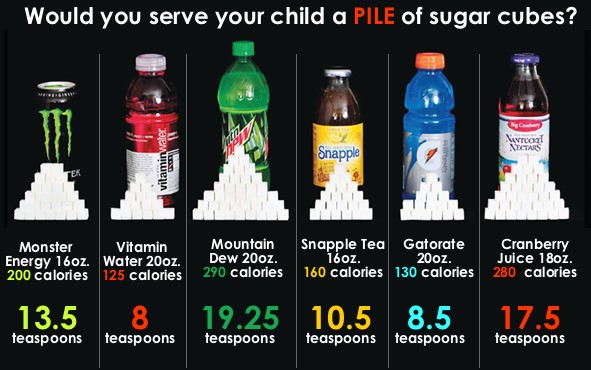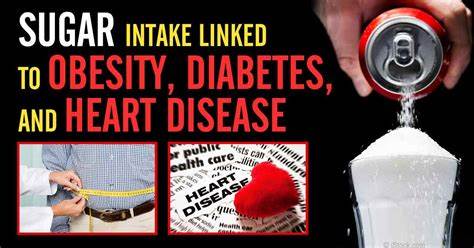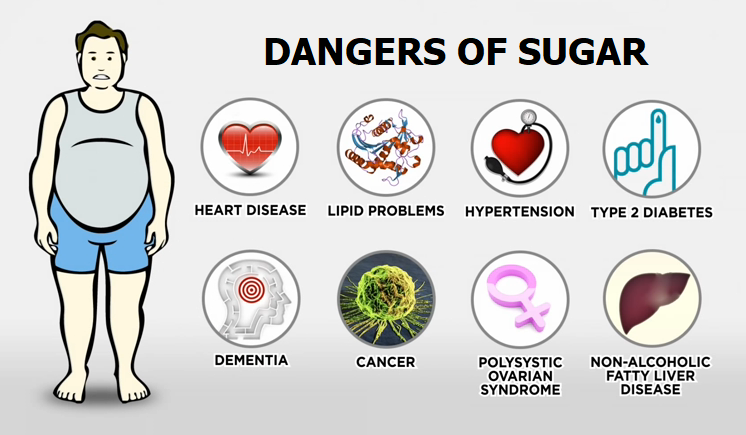You may not remember the alarm raised about fat and the diseases it causes, from expanding waistlines to a heart attack. The media coverage swamped us with facts about blocked arteries and the early death faced if we continued with our bacon and eggs breakfast.
Now, it has become increasingly noticeable that the havoc wreaked on our bodies is in fact caused by sugar, not fat. Yes, fat is not recommended, but health issues like heart disease, type 2 diabetes and even cancer are caused by the refined sweet taste of sugar.
Almost all our processed foods are now laced with sugar, and our ever expanding waistlines have only worsened since food manufacturers replaced fat with sugar. The sweet poison that is prevalent in our diets every day is making us sick.

Luckily, the damage caused by sugar can be reversed. Cutting back on sugar or even eliminating it completely can have instant, positive effects on our health.
A new study supports these findings. Targeting children, the researchers saw dramatic results in only 10 days. This is good news, as most diets take months to show results.
What the Study Found After 10 Days
The study was conducted over 10 days on a group of children aged 8 to 18. Each child suffered from obesity and had at least one other co-morbidity such as hypertension; glucose or insulin issues. None of the children were diabetic.
Dr Robert Lustig and his researchers from the University of California had the participants consume a diet of protein, fat and carbohydrates, but reduced dietary sugar from 28 percent to 10 percent and used starch as a substitute.
In just 10 days, a reduction in diastolic blood pressure, heart rate, cholesterol, and triglycerides was noted. Weight also reduced despite efforts by researchers to maintain it.
What This Means
The results explain themselves. In just 10 days, health improved in participants. Imagine the results in 30 days, 60 or a year.
Sugar does not add any nutritional value to our diets. Unfortunately, marketing campaigns have put a spin on sugar, promoting it as ‘fat free’ or low calories, when in fact sugar calories differ from ‘real food’ calories.

Millions are spent on advertising to convince us of their marketing ploy. What they don’t say is that the sugar consumed is stored as fat, and only a small amount at a time can be processed by a healthy liver.
According to the Heart and Stroke Foundation, an average diet should not contain more than 12 grams of sugar. A can of soda equates to 85 percent of the recommended intake of sugar.
The Foundation also lists the tricks used by the food industry to lure you into thinking a product is ‘healthy’ or sugar free by listing sugar under another name:
Lucose, fructose, dextrose, maltose, corn syrup, maltodextrin, dehydrated cane juice, and sucrose are just a few.
According to one recent study, sugar is as addictive as cocaine, triggering a part of your brain just as hard drugs do.
But that doesn’t mean you can’t quit sugar. To reduce your intake:
Don’t “drink your calories.” Keep it basic to water or plain coffee over your mocha. Add cinnamon instead of sugar for extra flavor.
Try whole foods that limit the amount of processing it goes through. Fresh and frozen vegetables, fish, whole grains, and cheeses are great alternatives.
Snack wisely with nuts, plain yogurt, crackers, vegetables and dip. Limit the chocolate intake and reduce baked goods.
And next time you go shopping, take a list with you minus the items with no nutritional benefits. Your body will thank you in the long run and so will your wallet.






